In an endless cycle of violence, the bishop of Orizaba, traveling with a group of priests, suffered an assault on a highway in the border area between Puebla and Veracruz, the Mexican bishops’ conference said April 6. The group was robbed but unharmed.
The incident comes however in the middle of what is shaping up to be the deadliest election cycle in Mexico’s history, with 29 political candidates killed in the run-up to the June 2 elections.
Gisela Gaytán Gutiérrez aspired to become mayor of a violent Mexican municipality, where drug cartels dispute the stolen gasoline trade.
But the mayoral candidate for the ruling Morena party was shot dead as she prepared for one of her first campaign events near the central city of Celaya.
Gaytán’s death shocked Mexico, where drug cartel violence has wracked swaths of the country for more than 15 years. It shocked Celaya, too, where more than 30 police officers have been murdered over the past three years and the bodies of five medical students were found stuffed into a car at the end of 2023.
“Not only did they kill a candidate, they killed a host of possibilities for good, which were taken from this city by criminals,” Father Padre César Cadavieco said at Gaytán’s emotional funeral Mass, according to Imagen Noticias.
“Hear it well, you cruel individuals. We people of good are far more than you, and Gisela’s blood will fall upon your heads and your children for seven generations,” the priest said.
At least 29 political candidates and potential candidates — representing all of the country’s registered political parties — have been killed in Mexico, according to Integralia Consultores, a consulting firm. Mexico holds elections June 2 for president, congress and more than 19,000 positions at the state and local level.
Integralia has counted at least 300 incidents of political violence since Sept. 1, 2023, the news magazine Proceso reported. Public security secretary Rosa Icela Rodríguez put the number of political aspirants killed at 15.
The attacks — which often go unsolved and unpunished — offered a rude reminder of the threats posed by drug cartels to Mexico’s democracy as illegal actors push into the political process and attempt to put their own people into public office.
Church leaders have been sounding the alarm on the consequences of politicians becoming beholden to drug cartels — a phenomenon they warn is becoming commonplace in parts of the country.
“We have never seen an electoral period so full of murders. This is something that should move us and shake our hearts,” retired Bishop José Raúl Vera López of Saltillo said in a March 24 homily. “They are fighting to obtain political power. What kind of rulers are we going to have if political parties are winning public positions through assassinations?”
The Mexican bishops’ conference has called on people to vote. It also has backed pro-democracy protests by civil society groups and warned that criminal groups meddling in politics jeopardizes the rule of law.
The bishops released a proposal for pacifying the country called National Agenda for Peace and invited all the three presidential candidates to sign it — which they did March 11 — though Morena candidate Claudia Sheinbaum described the document’s diagnosis as “pessimistic.” Sheinbaum leads all polls and has repeatedly insisted the country has become less violent under her political mentor, President Andrés Manuel López Obrador.
“We believe that the worst scenario, the one that we must avoid, is one in which organized crime and other criminal groups intervene in the electoral process,” the bishops said in a March 3 statement. “Electoral democracy mixed with crime is a totally unacceptable combination; it is a sign of the most deplorable corruption that must be avoided at all costs. For no reason can it be justified, much less entered into complicity.”
Drug cartels increasingly covet municipal governments in an attempt to control territory, according to analysts. Such control allows them to access local treasuries, have police turn a blind eye to illegal activities and steer public works contracts to friendly firms.
“Elections are a golden opportunity for criminal groups to gain access to state institutions and augment their sway over how the state acts and against whom,” Falko Ernst, senior Mexico analyst for the International Crisis Group, told OSV News.
“(For) candidates this often means that they find themselves between a rock and a hard place,” he explained. “If you collaborate with one group, you’ll face the wrath of others; you also do when you dare to do things correctly. Either way, the result is too often threat and violence.”
The four bishops of Guerrero state to the south of Mexico City recently helped broker a truce between drug cartels in February — an accord that Bishop José de Jesús González of Chilpancingo-Chilapa recently prayed would become “infinite.”
Retired Bishop Salvador Rangel of Chilpancingo-Chilapa told OSV News that he previously negotiated a deal with drug cartels to stop the killing of candidates prior to the 2021 midterm and state elections. There wasn’t a single political slaying in his diocese afterward, he said.
But the interference from drug cartels in campaigns continues to worsen, he said.
“Many drug traffickers take over political positions and that is how they have been working,” Bishop Rangel explained. “But in 2024, I believe that the majority of political positions are now being held by drug traffickers and it’s a big problem that is going to happen to us.”
In an April 6 statement, the president of Mexico’s bishops’ conference, Archbishop Rogelio Cabrera López of Monterrey and secretary-general Bishop Ramón Castro Castro of Cuernavaca, lamented the attack on Bishop Eduardo Cervantes Merino of Orizaba, “who on Wednesday, April 3, suffered an assault along with a group of priests who accompanied him on a highway in the border area between Puebla and Veracruz.”
The priests “were violently robbed of their belongings, but by the grace of God were not harmed.”
The bishops said in a statement they are “deeply hurt by this situation of insecurity that is experienced every day,” and asked the authorities to pay “more attention and care to a free and safe transit on the highways of the country.
“We ask God to touch the hearts of all the people who cause suffering, that the Lord may give them the gift of conversion and that as a society we may continue working in the reconstruction of the Peace we so long for.”

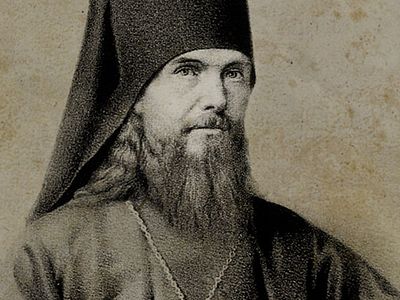 Theophan the Recluse
Theophan the Recluse Homilies on the BeatitudesSo, where can we seek the true way to beatitude? What guidance and which commandments should we observe to achieve it?
Homilies on the BeatitudesSo, where can we seek the true way to beatitude? What guidance and which commandments should we observe to achieve it?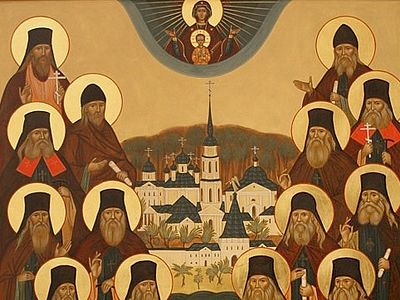 The Holy Elders of OptinaThrough God’s mercy, in spite of seventy years of Communist enslavement, ”prima vitae” of many of the Elders have been preserved. Written by their immediate disciples, these rare biographies contain a multitude of priceless details and anecdotes that shed light into the secret corners of lives totally dedicated to Jesus Christ.
The Holy Elders of OptinaThrough God’s mercy, in spite of seventy years of Communist enslavement, ”prima vitae” of many of the Elders have been preserved. Written by their immediate disciples, these rare biographies contain a multitude of priceless details and anecdotes that shed light into the secret corners of lives totally dedicated to Jesus Christ.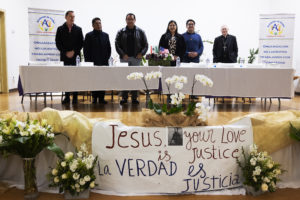
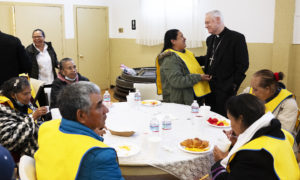
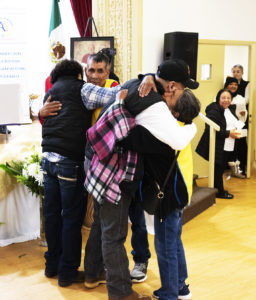
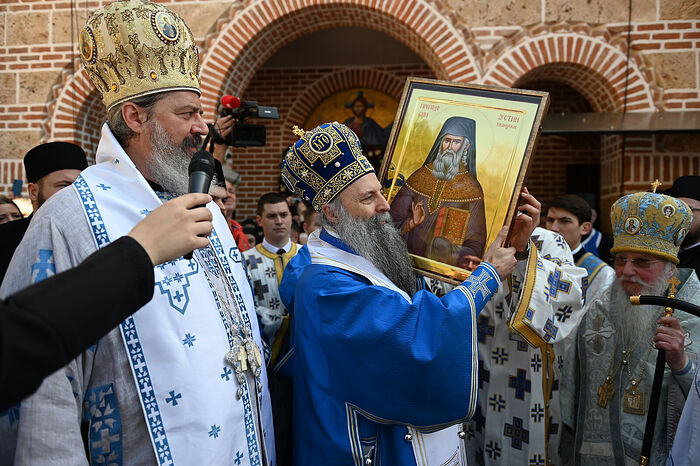
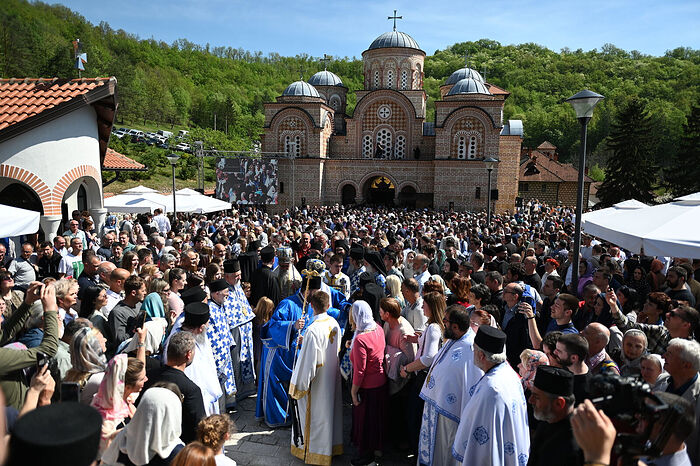
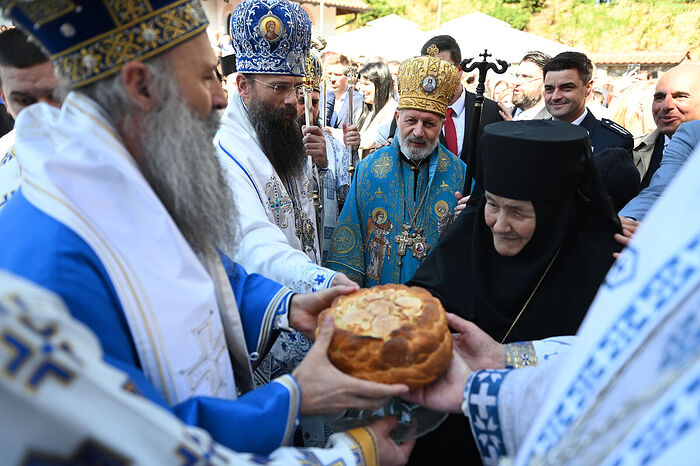

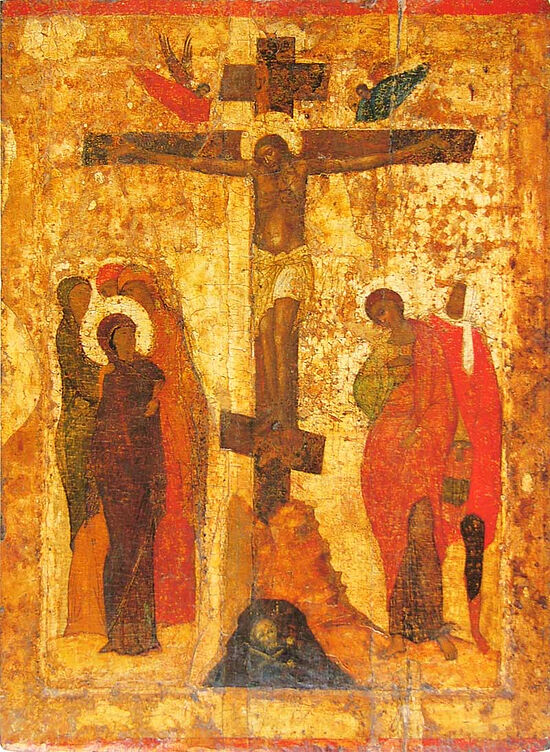
 The Third Sunday of Great Lent. The Veneration of the Cross
The Third Sunday of Great Lent. The Veneration of the Cross St. Macarius of Optina: On SorrowsKnow that God is taking care of you when He sends sorrows and grief, and wants through them to teach you and make you wise in spiritual reason.
St. Macarius of Optina: On SorrowsKnow that God is taking care of you when He sends sorrows and grief, and wants through them to teach you and make you wise in spiritual reason. Our Cross, and the Cross of ChristOur cross is vain and barren, no matter how heavy it may be, if it is not transformed into the Cross of Christ by our following Christ.
Our Cross, and the Cross of ChristOur cross is vain and barren, no matter how heavy it may be, if it is not transformed into the Cross of Christ by our following Christ.